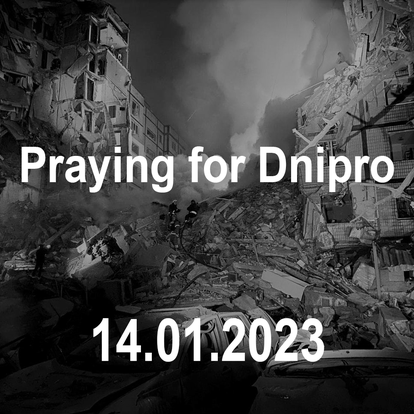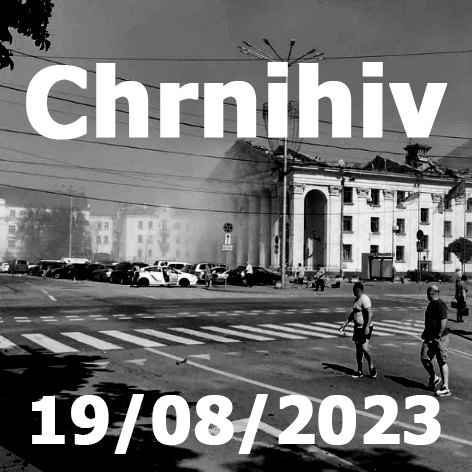Ukraine two years on - now and into the future
- Feb 23, 2024
- 6 min read

“It is very difficult to fathom the pain of people who have lost their loved ones since the beginning of Russia’s full-scale invasion on February 24, 2022, and those who continue to lose them on the frontlines and during terrible mass attacks on civilian infrastructure in the cities and villages of Ukraine,” said one Salvationist. “This especially affects the children.”
This Saturday, 24 February, marks the grim second anniversary of Russia’s invasion of Ukraine. Hundreds of thousands of military personnel on both sides have been killed and wounded. In Ukraine, more than 10,000 civilians have died, including hundreds of children. Ukrainians across the country are exhausted and traumatised, yet focused and determined. Much of the nation lies in ruins.
Since the war began and the first refugees began crossing borders into Europe, The Salvation Army has been actively serving those affected by the conflict, in Ukraine and in 28 other countries across the continent (and beyond!), where many have been forced to flee.
Having worked in Ukraine since 1993, The Salvation Army is focused on continuing its efforts during and after the hostilities, ensuring that people are supported now and in the future.
To find out more about The Salvation Army's response, click here to see the exhibition at International Headquarters’ Gallery 101.
For additional photos taken since the beginning of the war, click here.
To read more stories and testimonies from Ukraine on Salvos Online, click here.
In Ukraine
Across Ukraine, The Salvation Army has eight church and community centres.
When the war began, initial support was offered to displaced people and those who could not leave the country through the provision of temporary accommodation, clothes, hygiene items and hot meals.
Over time, this has been supplemented by meeting longer-term needs such as creative and playful activities for children, Wi-Fi, space for online schooling, clothing distribution, exercise classes, craft and cooking, art therapy, English lessons, youth activities such as table tennis and music, and spiritual and psychological support. In many corps, a place to be together in a loving and supportive environment, is critical.

Sunday worship meetings, youth groups, Bible studies and Sunday school programs also continue and form the backbone of corps work.
Despite their own challenges and incredibly difficult circumstances, Salvation Army officers, corps, employees and volunteers continue to serve and share God’s love and light in dark times.
Not alone
In response to damage from bombing, The Salvation Army has been working to support those most affected through the provision of essential supplies. Kharkiv has been a regular target, in part due to its proximity to the border with Russia. Many people have been unable to leave the city. Others, including Salvationists, have chosen to stay and assist others.

In the Saltivka area of Kharkiv, the damage has been heavy, with broken windows, collapsed roofs and burnt and destroyed homes commonplace. Yuri’s home was badly affected. “My house was not damaged at all during the German occupation in the Second World War,” he said. The damage to the house worsens each week and Yuri is unable to keep on top of the repairs.
Yuri is one of those helped with a recent distribution of essential supply kits by The Salvation Army. Each set contains a tent, two beds, two sleeping bags, tables, chairs, a stove with fuel and some utensils. Yuri was moved by this support and said: “Your kindness gives me hope and faith in the future because we are not alone.”

After-school catch-ups
Across Ukraine, The Salvation Army is developing after-school programs to support children whose education has been disrupted by schools being too unsafe to open, irregular timetables and constant time in bomb shelters.
After-school programs are also being run elsewhere in Europe, particularly in Georgia, Moldova and Romania. These programs provide additional lessons in subjects like Ukrainian, Maths, English and Physics, and the extra hours of care mean that parents can work, knowing that their children are safe.

Shelter near Kyiv
Near the capital of Kyiv, a small, temporary housing complex has been set up and is supported by The Salvation Army. It provides accommodation to people who have been displaced due to their homes being destroyed.
Two rows of prefabricated dormitories were placed together in a car park, each including communal bathrooms and kitchens. The Salvation Army supplied equipment for furnishing these homes and continues to provide regular support through the distribution of food and hygiene items.
Power and connection
After receiving donations of portable power stations from other countries, The Salvation Army has been able to offer places providing power and connection at its centres. Heating, water, electricity and mobile communication are available, with the intention that supply remains uninterrupted as far as possible.
European response
Across Europe, The Salvation Army continues to respond to the needs of displaced people from Ukraine.

Four Salvation Army centres in Poland are distributing supermarket vouchers to displaced people from Ukraine in need of support. This allows people to choose the products they need the most. Dignity is an important part of The Salvation Army’s humanitarian response.
In Malbork, people are visited by Salvation Army personnel rather than having to attend the organisation’s centre, allowing deeper relationships to be formed.
A family from Ukraine is being supported in Starachowice. After seeking practical assistance from the organisation, they have also found community in The Salvation Army as a church.

Hot meals are prepared every day in Batumi, Georgia. All staff currently employed for the project are from Ukraine. This provides work opportunities and enables them to share their knowledge of culturally appropriate food.
Operating from newly refurbished facilities at its centre in the city, the scheme offers nutritious food and a space for community to those displaced by the war.
Maria, who came to Batumi from Ukraine’s Kherson region with her daughter and granddaughter, described the impact of The Salvation Army’s work: “We are very grateful to this organisation that provides us with assistance: for delicious dinners, for support with products, and for very nice and kind people. We thank them for everything.”
As people have fled Ukraine and come to Moldova, The Salvation Army has opened its centres and headquarters building as places of welcome. Here meals, vouchers, bedding and other such items have been given to people who, in most cases, arrived with very little.
In Ungheni, for instance, The Salvation Army provides breakfast for around 70 refugees three times a week. Temporary accommodation has also been offered in various locations across the country, as well as assistance in continuing to third countries.
Smiles come back
Language is not always a consideration in deciding which country to flee to, so one significant initiative in Le Havre, France, is the French language lessons offered by Ukraine‑born Viktoriia Veremieienko.

As a result of The Salvation Army’s efforts, around 500 refugees have also been supported through accommodation and community in Le Havre, France.
“The biggest challenge was finding a large amount of housing at short notice,” said Florence Fanelli-Faure, director of social work in Le Havre: “When the Ukrainian community arrived, we had no room left at all. We had to go everywhere to find some places.”
The apartments are rented by The Salvation Army, then sub-let to the Ukrainian refugees. People are supported to find training – including French language lessons and work – meaning that they can fund their own accommodation in the long term.
Iryna, a refugee from Ukraine, spoke positively about The Salvation Army: “They helped us with many things: with the place for living, with our questions. All that we have now is because The Salvation Army helped us.”
Florence is positive about the impact of The Salvation Army on those displaced by the Russia–Ukraine war, and hopeful about the future. “I cannot say Ukrainians are happy in France; they are very sad about the situation,” she noted. “But I think as time goes [by], smiles come back.”
PRAY FOR:
· All the people affected by the war – for those who have been forced to flee, for those who have experienced loss, suffering and trauma, for the vulnerable, for those who are struggling to receive essential supplies.
· Lasting peace in Ukraine – an end to the conflict. Pray for an end to violence and for the success of diplomatic solutions.
· Everyone who is giving support to people affected by the conflict. Pray for those on the ground, those offering vital administrative and logistical assistance, for fundraisers and donors. Pray for those who are in Ukraine providing humanitarian aid and for those across the world who are helping displaced people and others who are suffering.
· The work of The Salvation Army. Pray that we have good relationships with governments and other organisations as we support those in need. Pray for Salvation Army officers, staff and volunteers in Ukraine. Pray that we will listen to those with whom we come into contact and have the resources to be able to meet their needs.
Read more about The Salvation Army’s work supporting those affected by the war: Response to the Russia-Ukraine war
Click on the arrow to the right on the image for a slideshow of life in Ukraine and The Salvation Army’s ministry.






























